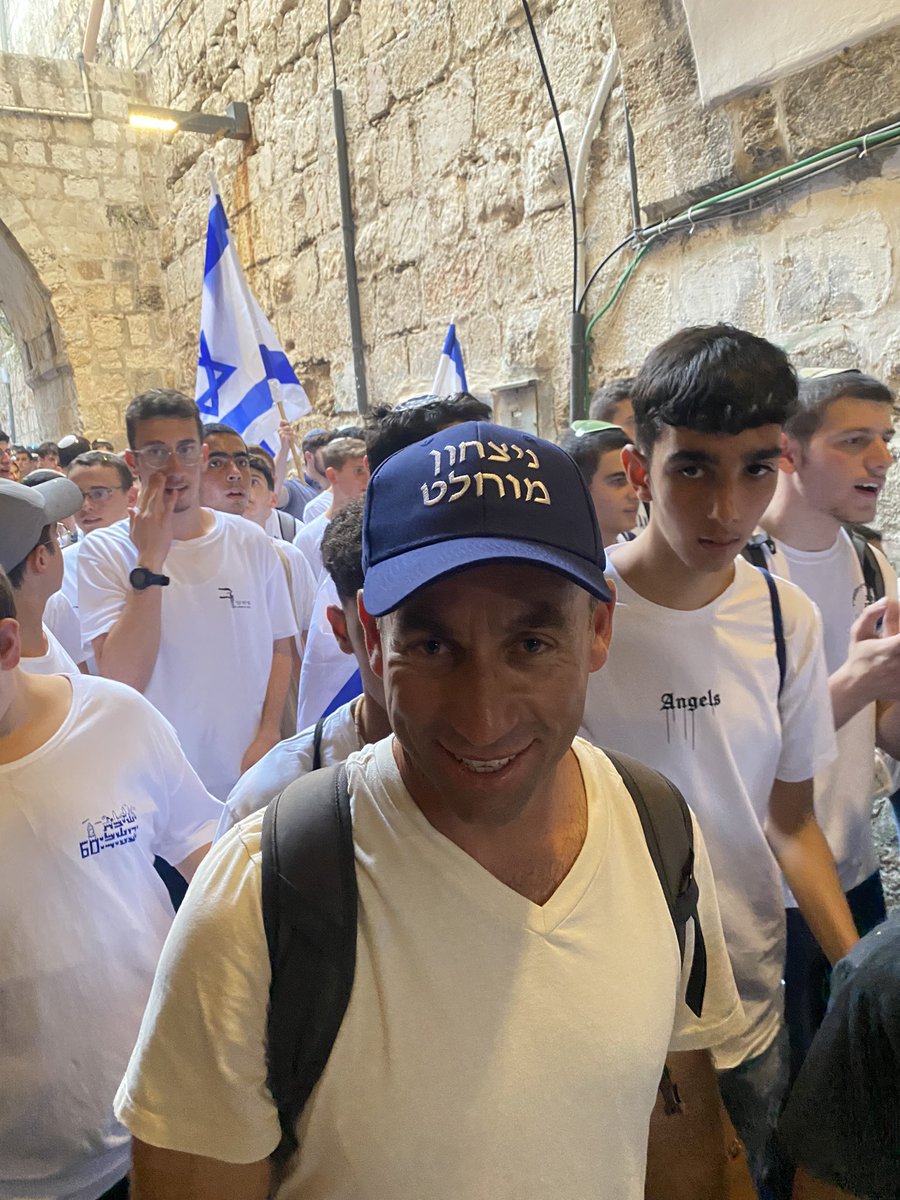A thread if moments I captured at the annual Jewish supremacy hate march that took place today in Jerusalem
First:
Marchers chant “May your village burn” as they walk through the Muslim quarter
First:
Marchers chant “May your village burn” as they walk through the Muslim quarter
Beitar Jerusalem FC ultras group La Familia spray graffiti on the doors of Palestinian homes
And one of many Jewish stars sprayed on doors in the Muslim quarter



And one of many Jewish stars sprayed on doors in the Muslim quarter



“Death to the Arabs”
A few of the many stickers put on Palestinian shops in the Muslim quarter
They say
“Jews, revenge!”
“War, Expulsion, settlement”
“Rabbi Kahana was right”
Another one with Ben gvir and one with the Kahana movement symbol.




They say
“Jews, revenge!”
“War, Expulsion, settlement”
“Rabbi Kahana was right”
Another one with Ben gvir and one with the Kahana movement symbol.




Signs of Palestinian shops were sabotaged
All the alleys and streets in the Muslim quarter were blocked by the police for movement for Palestinians.



All the alleys and streets in the Muslim quarter were blocked by the police for movement for Palestinians.



Ive seen a lot of banging on the doors of homes and shops and some attempts to ruin the doors.
Scenes from Damascus gate
• • •
Missing some Tweet in this thread? You can try to
force a refresh








